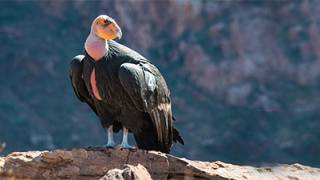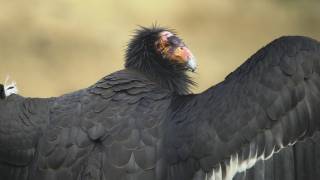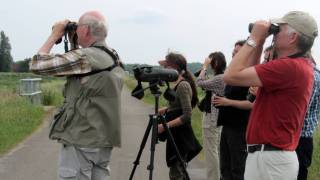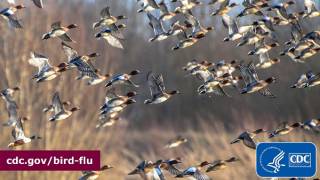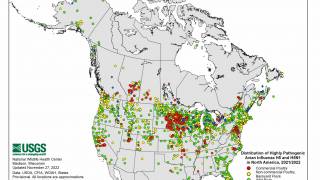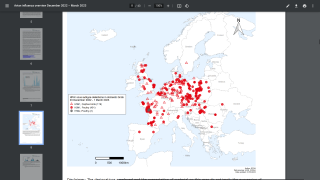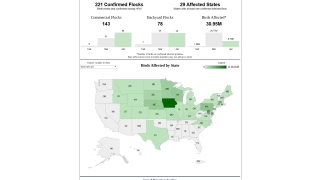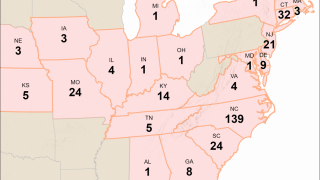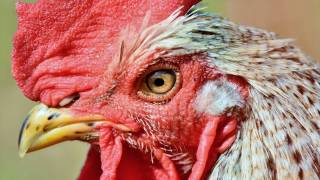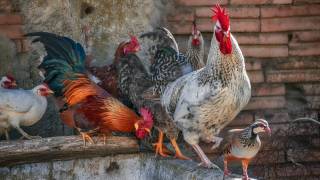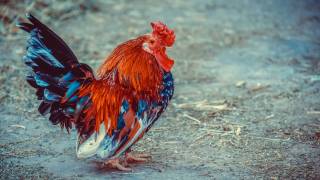Bottlenose Dolphin in Florida Died from Bird Flu
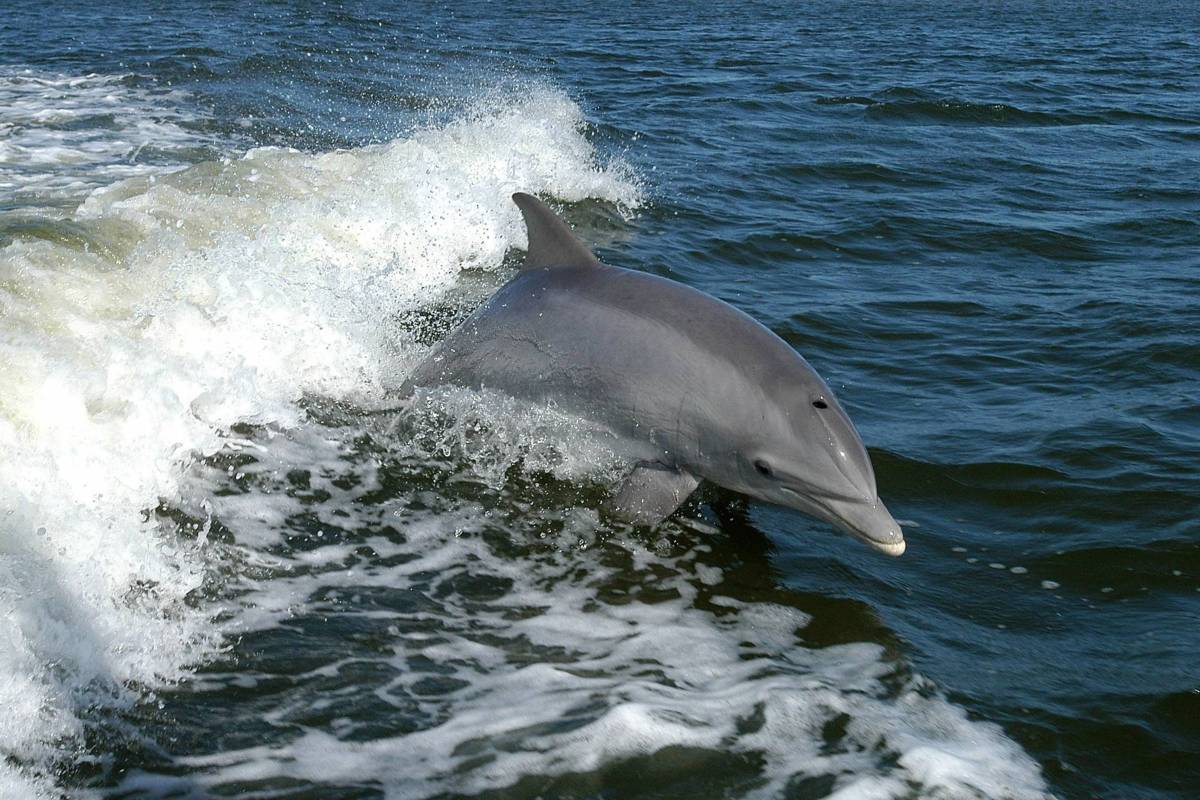
When a bottlenose dolphin was found dead in Florida's Dixie County earlier this year, a marine animal rescue team from the University of Florida (UF) did not immediately suspect anything out of the ordinary when they performed a routine necropsy.
Tests for common causes of death turned up negative in this young male dolphin found at Horseshoe Beach.
"However, this dolphin had inflammation of the brain and also the tissues surrounding the brain, known as the meninges," said Robert Ossiboff, D.V.M., Ph.D., an associate professor of veterinary anatomical pathology at UF, in a press release on September 7, 2022.
"This finding was unusual."
Andrew Allison, Ph.D., an assistant professor of veterinary virology at UF, added, "Although avian flu infection had never been documented in a dolphin, the high incidence of the virus in wild birds in the spring — specifically aquatic bird species such as ducks, gulls, terns, and herons — suggested that encounters between dolphins and dying or dead birds near the shoreline was not out of the realm of possibility."
Wild birds that succumb to the highly pathogenic avian influenza virus (HPAIV) often have neurologic signs with the virus found in their brains since the dolphin had inflammation of the brain and meninges that a virus could have caused.
Based on these initial suspicions, the UF researchers sent dolphin brain and lung samples to the state's Bronson Animal Disease Diagnostic Laboratory in Kissimmee, Florida.
There, suspicions were confirmed, as the samples tested positive for HAPIV.
The case was the first time the HAPIV (bird flu) had been identified in a cetacean in North America.
The virus recovered from the dolphin belonged to clade 2.3.4.4b of the Eurasian H5 viral lineage.
Wild birds have spread H5 clade 2.3.4.4b HPAIV throughout the USA in 2022.
As of September 7, 2022, the USDA reported that 39 states had confirmed the loss of over 43 million birds due to HAPIV infections this year.
"While obviously, the presence of HPAIV is a concern, the key takeaway for us is that additional caution should be taken by those handling or encountering wild dolphins during rescue events or while performing necropsies," said Mike Walsh, D.V.M., a clinical associate professor with UF's College of Veterinary Medicine who performed the dolphin's necropsy with others.
HAPIV infections have become common in birds; however, fatal infections have also been reported in red foxes, raccoons, striped skunks, and harbor seals in 2022. HAPIV was also found as the cause of death of a black bear.
The U.S. CDC says avian influenza is a contagious respiratory illness caused by various zoonotic (animal) viruses.
The H5N1 bird flu virus emerged in southern China in 1996, later causing large poultry outbreaks in 1997, resulting in 18 human infections.
The H5N1 bird flu viruses were not eradicated and re-surfaced in 2003, spreading throughout Asia and later in Africa, Europe, and the Middle East.
Since 2003, 19 countries have reported more than 860 human infections with H5N1 bird flu viruses, with about 53% of those cases resulting in fatalities.
In contrast to previous 'bird flu outbreaks, only two non-fatal human cases with current H5N1 bird flu viruses have been reported.
One infection occurred in December 2021 in a person in the U.K. who raised birds.
A second human case was reported in Colorado in April 2022 in a person who was culling H5N1 virus-infected poultry.
Since annual flu shots do not protect people from bird flu infections, the U.S. government has approved a vaccine and could distribute it if a person-to-person bird flu outbreak occurs.
The U.S. FDA authorized CSL Seqirus' Audenz monovalent cell-based vaccine in 2020.
The good news from the U.S. CDC is.... that the public health risk associated with these avian influenza detections in birds remains low as of September 8, 2022.
Other avian influenza news is posted at PrecisionVaccinations.com/Avian.
Note: Sarah Carey, Public Relations Director, UF College of Veterinary Medicine, wrote the original article, which was manually curated for mobile readership.
Our Trust Standards: Medical Advisory Committee

